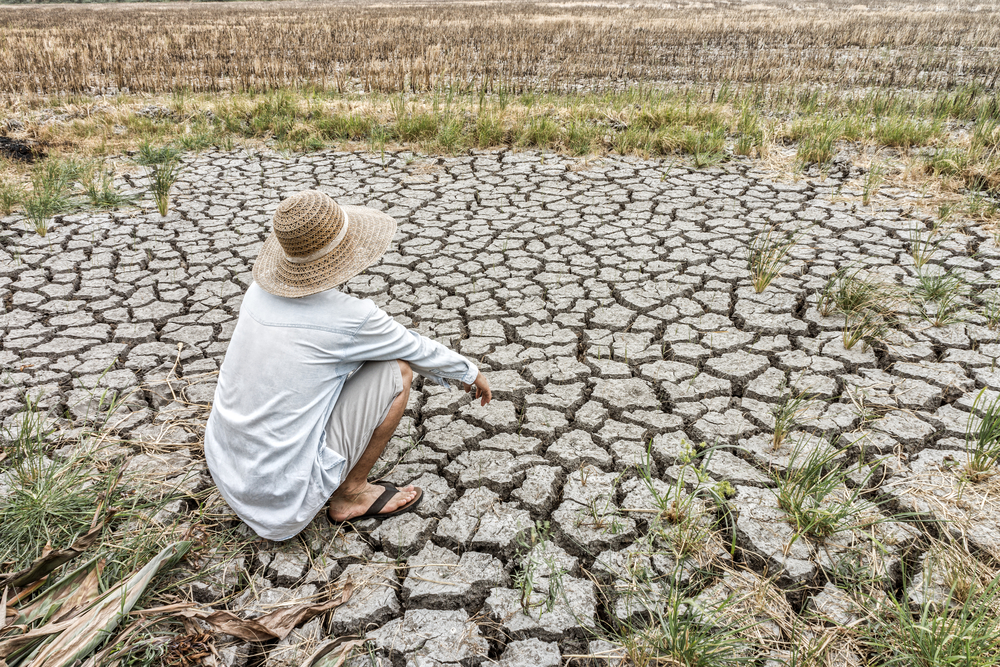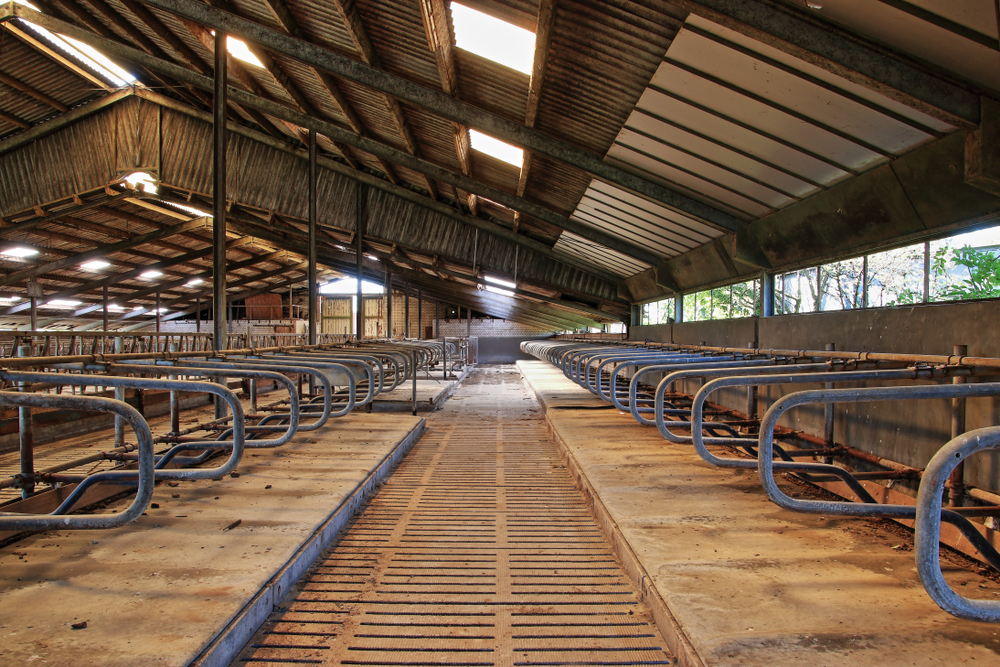This Year in Farming and Food
As we count down the days left in 2019, we’re looking back at some of the most important agriculture stories of the year.
This Year in Farming and Food
As we count down the days left in 2019, we’re looking back at some of the most important agriculture stories of the year.

by LittlePerfectStock on Shutterstock
From trade wars to floods and droughts, 2019 has not been easy for many farmers. Here are some of the biggest agriculture stories of the year:

Government Shutdown
The 2018 government shutdown bled into the first 25 days of 2019, affecting all sorts of agricultural programs at the USDA. The agency halted examining new grants and loans and delayed its crop reports. The FDA stopped most domestic food inspections during the shutdown. The government reopened after 35 days—the longest shutdown in American history. Let’s just say it was an interesting start to the year.

Crazy Weather
The weather became that much more erratic in many parts of the country this year. In March, floods devastated the Midwest, damaging farmland, destroying grain and killing livestock. This fall, farmers in parts of the southeast were praying for rain, as they experienced an extreme “flash drought.” This meant that states from Virginia through to northern Florida endured temperatures between nine and 12 degrees above normal, reaching record highs.

Fires in the Amazon
More than 87,000 fires burned in the Amazon this summer, blackening the skies in Brazilian cities. This was the highest number of fires that ripped through the jungle known as the “Earth’s lungs” since 2010. Most of the fires were intentionally set to clear trees for agriculture. There’s some evidence that shows locals felt emboldened to set more illegal fires this year without fear of penalty because of Brazilian President Jair Bolsonaro’s pledge to roll back environmental regulations to develop more of the Amazon.

Trade Wars
President Donald Trump’s trade wars really took off in 2019. After Trump slapped 25-percent tariffs on a number of Chinese goods in 2018, China responded with its own tariffs on a number of American products, including soybeans and pork. In August, the Chinese stopped buying American agricultural products entirely. There has been a thaw since, as China started buying American soybeans again in September and both sides agreed to delay additional tariffs on some agricultural products. And in November, the Chinese government lifted its years-long ban on American poultry products, facing pressure from its own domestic meat prices due to an outbreak of African swine flu.

Census, Bailouts and Bankruptcies
The agriculture census, which comes out every five years, showed that the total number of farms was down 3.2 percent from the last census, as was the total amount of farmland. The census also showed that the average size of farmland increased, meaning the smaller number of farms that survived are larger. Farmer income also saw its largest drop in three years in the first quarter of 2019.
To help farmers through the hard times of the trade war, the Trump administration announced a $16-billion aid package for farmers in May. But analyses have shown that subsidies doled out to farmers have disproportionately helped wealthy farmers.
And despite the bailouts, farm bankruptcies were way up in 2019. For the year leading up to September, farmers were filing for bankruptcies at a rate 24 percent higher than the year before. America’s largest dairy producer, Dean Foods, filed for bankruptcy in November. Ever low milk prices have also forced many dairy farmers out of business this year.
But it wasn’t all doom and gloom in 2019. We learned that honeybees “surf” to get out of water, and that sweet potatoes alert their buddies to pest attacks. We’ll call it a wash.
Follow us
This work is licensed under a Creative Commons Attribution-NoDerivatives 4.0 International License.
Want to republish a Modern Farmer story?
We are happy for Modern Farmer stories to be shared, and encourage you to republish our articles for your audience. When doing so, we ask that you follow these guidelines:
Please credit us and our writers
For the author byline, please use “Author Name, Modern Farmer.” At the top of our stories, if on the web, please include this text and link: “This story was originally published by Modern Farmer.”
Please make sure to include a link back to either our home page or the article URL.
At the bottom of the story, please include the following text:
“Modern Farmer is a nonprofit initiative dedicated to raising awareness and catalyzing action at the intersection of food, agriculture, and society. Read more at <link>Modern Farmer</link>.”
Use our widget
We’d like to be able to track our stories, so we ask that if you republish our content, you do so using our widget (located on the left hand side of the article). The HTML code has a built-in tracker that tells us the data and domain where the story was published, as well as view counts.
Check the image requirements
It’s your responsibility to confirm you're licensed to republish images in our articles. Some images, such as those from commercial providers, don't allow their images to be republished without permission or payment. Copyright terms are generally listed in the image caption and attribution. You are welcome to omit our images or substitute with your own. Charts and interactive graphics follow the same rules.
Don’t change too much. Or, ask us first.
Articles must be republished in their entirety. It’s okay to change references to time (“today” to “yesterday”) or location (“Iowa City, IA” to “here”). But please keep everything else the same.
If you feel strongly that a more material edit needs to be made, get in touch with us at [email protected]. We’re happy to discuss it with the original author, but we must have prior approval for changes before publication.
Special cases
Extracts. You may run the first few lines or paragraphs of the article and then say: “Read the full article at Modern Farmer” with a link back to the original article.
Quotes. You may quote authors provided you include a link back to the article URL.
Translations. These require writer approval. To inquire about translation of a Modern Farmer article, contact us at [email protected]
Signed consent / copyright release forms. These are not required, provided you are following these guidelines.
Print. Articles can be republished in print under these same rules, with the exception that you do not need to include the links.
Tag us
When sharing the story on social media, please tag us using the following: - Twitter (@ModFarm) - Facebook (@ModernFarmerMedia) - Instagram (@modfarm)
Use our content respectfully
Modern Farmer is a nonprofit and as such we share our content for free and in good faith in order to reach new audiences. Respectfully,
No selling ads against our stories. It’s okay to put our stories on pages with ads.
Don’t republish our material wholesale, or automatically; you need to select stories to be republished individually.
You have no rights to sell, license, syndicate, or otherwise represent yourself as the authorized owner of our material to any third parties. This means that you cannot actively publish or submit our work for syndication to third party platforms or apps like Apple News or Google News. We understand that publishers cannot fully control when certain third parties automatically summarize or crawl content from publishers’ own sites.
Keep in touch
We want to hear from you if you love Modern Farmer content, have a collaboration idea, or anything else to share. As a nonprofit outlet, we work in service of our community and are always open to comments, feedback, and ideas. Contact us at [email protected].by Alex Robinson, Modern Farmer
December 29, 2019
Modern Farmer Weekly
Solutions Hub
Innovations, ideas and inspiration. Actionable solutions for a resilient food system.
ExploreExplore other topics
Share With Us
We want to hear from Modern Farmer readers who have thoughtful commentary, actionable solutions, or helpful ideas to share.
SubmitNecessary cookies are absolutely essential for the website to function properly. This category only includes cookies that ensures basic functionalities and security features of the website. These cookies do not store any personal information.
Any cookies that may not be particularly necessary for the website to function and are used specifically to collect user personal data via analytics, ads, other embedded contents are termed as non-necessary cookies.
What is the predicted outlook for small farms in Texas for 2020?